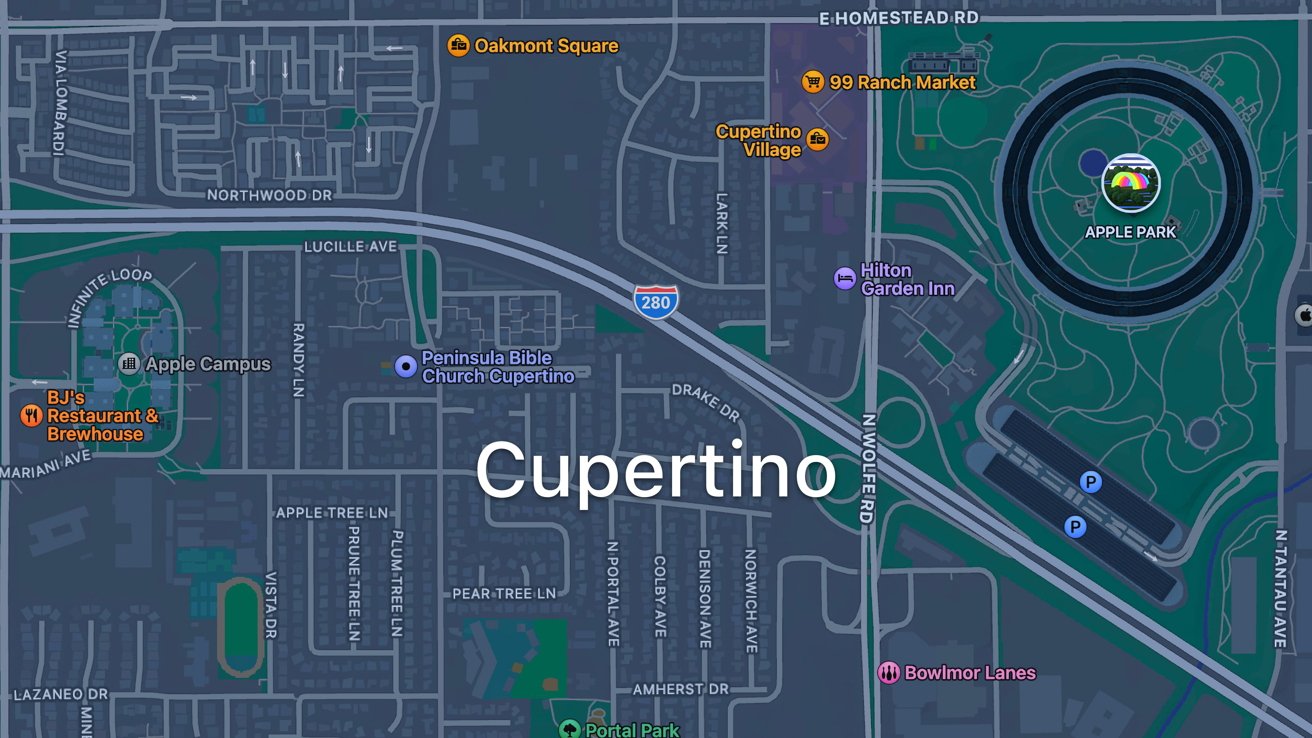California wants a bigger piece of Cupertino's tax earnings from Apple
A tax deal relating to online sales between Apple and the city of Cupertino is set to fall through, resulting in a 73% tax revenue decline.

Apple's hometown is Cupertino
Since 1998, Apple has reportedly had a deal with its hometown of Cupertino to treat all online sales made in California as if they were made in that city. This led to the 1% local portion of tax revenue swelling for years as Apple grew, not to mention a 35% kickback to Apple from Cupertino.
According to a report from Bloomberg, an audit that launched in 2021 by the California Department of Tax and Fee Administration has led to a breakdown of this old deal with Apple. Nothing is set in stone, as Cupertino's finance director is scheduled to explain the audit's findings to the city council on Thursday, but Cupertino is expected to see a significant tax revenue decline.
The report explains that Apple had a deal with Cupertino to report every online transaction made in California as if it were made in Cupertino. California law states that a portion of the sales tax goes to the location where a transaction takes place.
So, Apple reports all online sales in California as taking place in Cupertino, then it pays the 7.25% state sales tax to the tax department. The local 1% portion goes to Cupertino, which then passes 35% of that total back to Apple.
Those payments back to Apple have added up to $107.7 million since 1998, according to this report.
The tax revenue for Cupertino is set to drop to $11.4 million from $42.1 million. That and Cupertino may be required to return the money to the state that it received in previous years.
The audit and subsequent fines are set to reduce Cupertino's operation spending by millions. The city is expected to cut jobs, reduce local events, and reduce funding until things balance out -- which may not be until 2030.
Read on AppleInsider

Apple's hometown is Cupertino
Since 1998, Apple has reportedly had a deal with its hometown of Cupertino to treat all online sales made in California as if they were made in that city. This led to the 1% local portion of tax revenue swelling for years as Apple grew, not to mention a 35% kickback to Apple from Cupertino.
According to a report from Bloomberg, an audit that launched in 2021 by the California Department of Tax and Fee Administration has led to a breakdown of this old deal with Apple. Nothing is set in stone, as Cupertino's finance director is scheduled to explain the audit's findings to the city council on Thursday, but Cupertino is expected to see a significant tax revenue decline.
The report explains that Apple had a deal with Cupertino to report every online transaction made in California as if it were made in Cupertino. California law states that a portion of the sales tax goes to the location where a transaction takes place.
So, Apple reports all online sales in California as taking place in Cupertino, then it pays the 7.25% state sales tax to the tax department. The local 1% portion goes to Cupertino, which then passes 35% of that total back to Apple.
Those payments back to Apple have added up to $107.7 million since 1998, according to this report.
The tax revenue for Cupertino is set to drop to $11.4 million from $42.1 million. That and Cupertino may be required to return the money to the state that it received in previous years.
The audit and subsequent fines are set to reduce Cupertino's operation spending by millions. The city is expected to cut jobs, reduce local events, and reduce funding until things balance out -- which may not be until 2030.
Read on AppleInsider

Comments
So the question is, are all CA online purchases handled inside Apple HQ or in Cupertino at all? Most likely not. Apple probably handle online sale transactions on sites outside of their HQ and Cupertino, but credited Cupertino with the sale. When in reality, the tax credit should be where Apple actually handled the transaction. It might be a warehouse in San Jose or Sacramento (Apple main CA distribution center is in Elk Grove). I kind of doubt that Apple HQ is where they keep their stock of online products and they are shipped from there. If the purchase is shipped from the nearest Apple Store or Apple warehouse that have it in stock, then the sale tax should be base on the location of that Apple Store or warehouse and credited to those local districts.
https://biz.crast.net/apples-local-tax-arrangement-with-hometown-comes-under-fire-2/
>At issue is the company’s treatment of online sales. Under California law, a local portion of the sales tax goes to the location where the transaction occurs, not the customer’s location.<
https://www.warehouseautomation.ca/news-notes-1/2020/10/9/apple-to-use-retail-stores-as-distribution-centers-for-faster-deliveries-8tj2z
No Apple chose to book them based on their US headquarters and worked a tax cut from the city council. The rebate is a bit shady. The article makes it seem that Cupertino will be the one taking the hit so I hope Apple can find a way to hero them out.
Nah, what’s going on is, as the greatest prime minister of the 20th century said “ the trouble with socialism is it eventually runs out of Other Peoples’ Money.”
so the State of California is always looking for new pots of OPM. The larger the better. And to drive more businesses east of course.